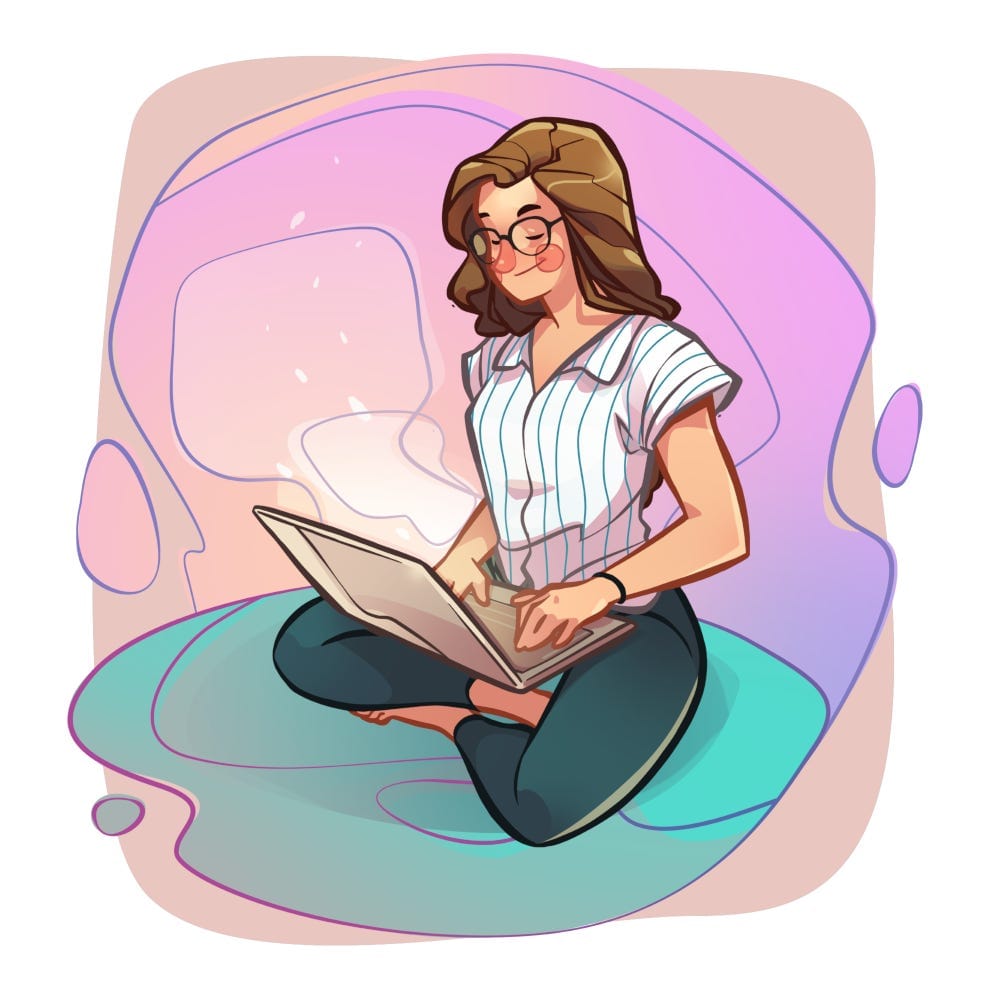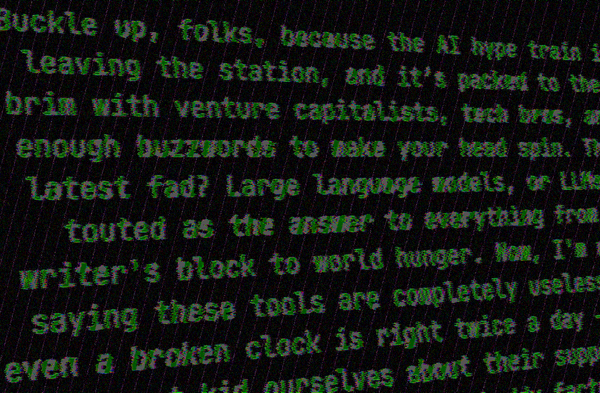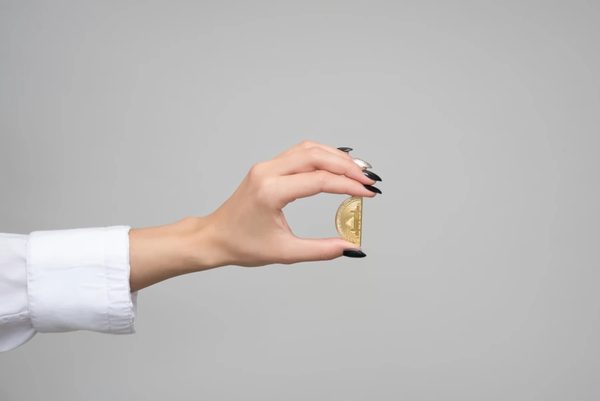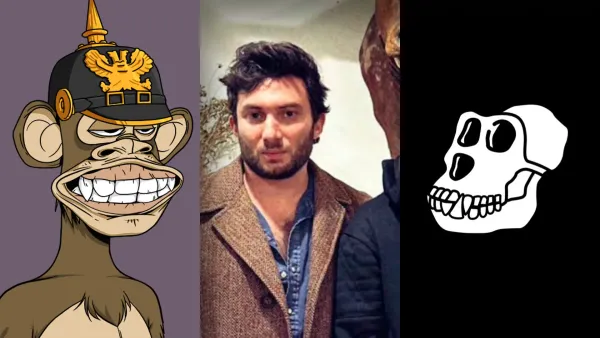Issue 0 – Introduction
Introducing the Whitespace newsletter, and a little more on what's next for me.

I've launched a newsletter,a and would be delighted if you would consider supporting or sharing.
I've been a little busy this year.
I launched Web3 is Going Just Great in December, and since then I've researched and written more than 750 entries for the site, which has more than 100,000 followers on Twitter and finds itself on the first page of Google results for the search query "web3". I've written fourteen longer-form essays about cryptocurrencies and blockchains, and I gave a guest lecture at Stanford University about the abuse and harassment risk, which subsequently received more than 20,000 views when published on YouTube. I've participated in roundtables to help advise the Office of Science and Technology Policy and the Financial Stability Oversight Council, and spoken to policymakers and regulators at both the federal and state level. I was a lead signatory on the Letter in Support of Responsible Fintech Policy, and I brought together around fifteen cryptocurrency researchers and critics to highlight how the media has been irresponsible in its coverage of crypto. The open source code I wrote for that was later reused by The Globe and Mail to annotate a speech by the Pope. I also started a discussion among the Wikimedia community that ultimately resulted in the Wikimedia Foundation, the non-profit organization behind Wikipedia and related projects, no longer accepting cryptocurrency donations, a strong stance that made waves even outside of crypto media.
The Washington Post published an article describing me as "the cryptocurrency world's biggest critic", and John Naughton wrote in The Guardian that I "could be the new JK Galbraith… just much tougher" and described me as "the sharpest critic of crypto on the web". I've spoken to countless other publications to try to get my message out, and appeared on TV networks including CNN, Bloomberg, and ABC (the Australian one). I've spoken on podcasts ranging from the more mainstream (Current Affairs and Recode Media) to the tech industry-specific (Reimagining the Internet, Tech Won't Save Us, and This Week in Startups) to the crypto-focused (Crypto Critics' Corner, Griftonomics, and Digitally Rare). Fast Company named me as one of their Most Creative People, and I was recently made a Google "Champion Innovator".
When I left my job in May, I planned to take a month or three off to spend time with family and decompress from a long period of high stress at work. I imagined the days would mostly consist of walking my dog, reading novels, and poking at a side project if the urge struck.
Needless to say, that's not quite what happened.
I'm currently spending at least twenty hours a week researching, writing, coding, and talking to people (interspersed with plenty of family time and dog walks, don't worry). To date I've chosen not to accept payment for this work, save for $477 in donations towards Web3 is Going Just Great's hosting costs (at the time of writing; always up-to-date on the contributions page), preferring to remain financially unentangled.
I expected that by the end of the summer I'd probably have run out of things to do and would be ready to jump into my next software job. But it's been about three months—what I estimated might be the upper bound of time I spent gainfully unemployed—and I've barely even touched my stack of novels. But although I am far from bored, it's time for me to think more concretely about what's next.
I have a lot I still want to do. I've got a few exciting things lined up, some of which I can talk about now: I've accepted an invitation to become an affiliate at the Berkman Klein Center for Internet & Society at Harvard University, where I'm excited to collaborate more with some brilliant people on what the future of the web should look like. I'll also be speaking at the first conference to take a more skeptical view of cryptocurrencies and blockchains, through which we aim to provide some counterbalance to the explosion of moneyed and connected crypto industry lobbyists attempting to influence policy. (Registration is still open, join us!) And of course, I intend to continue doing all the same types of things I've listed above: maintaining Web3 is Going Just Great, researching and writing, speaking to journalists, and offering my advice where I think I can make an impact. My to-do lists (yes, plural) are brimming with features I'd like to add to Web3 is Going Just Great, other coding projects that would help me with crypto analysis and keeping track of my research, essays to write, and rabbitholes to dive into.
I still plan to go back to software in the near term—I do enjoy it very much, and I also live in a country where the best way to get health insurance tends to be through a job with benefits. Even if I were to go back to full-time software development tomorrow, I would keep doing the types of things I described above (though inevitably to a lesser extent). After all, I managed it from December to May, while also working more than 40 hours a week.
However, I've realized that, at least until this May, I had structured my life such that I spent most of my time doing the needful—first attending classes and studying, then working full-time—while squeezing in what I thought was important around the edges.
It started when I was a teenager, when I started spending a lot of time after school (okay, sometimes during school) writing Wikipedia articles and otherwise helping to maintain what I feel is an incredibly important free knowledge resource. In high school and college, I volunteered to mentor college students who were editing Wikipedia as a part of their coursework in hopes of bringing them into the editing community more permanently. From 2014–2017 and 2019–2020 I served on Wikipedia's Arbitration Committee, the "last resort" on Wikipedia for major disputes, and where I helped arbitrate conflicts on topics ranging from American politics to Palestine–Israel to Gamergate to administrator misconduct. In 2016 I compiled a website (look familiar?) to help expose some serious organizational issues that had developed at the Wikimedia Foundation, which ultimately helped spur major change. In 2018 or so I began to take a more active role in maintaining Wikipedia articles about political and gender-related extremism. The latter two efforts both put me in the crosshairs for serious harassment, doxing, and threats, which I've endured without backing down. In 2021, I helped journalists document the meltdown of the domain registrar and friend to far-right extremists, Epik, and pushed for accountability and action relating to their executives' own harassment of individuals and enablement of those who used their services to endanger others. Also in 2021, I worked on an open source tool to help security researchers discover vulnerabilities exposed via Github, such as the startlingly widespread use of default credentials among organizations who deploy Google Earth Enterprise.
The common thread is that it doesn't really make sense to be paid for any of these specific things, and I've always done all of them for free. But I've come to realize there are people who wish to support me in continuing to do these general kinds of things—whether related to cryptocurrency, Wikipedia, or something else—and who would like to help me make this a more sustainable part of my life.
For that reason, I've created a Substack for those who want to support me in continuing to devote a lot of my time to this type of work. I would love to be able to continue focusing solely on this work for a little while longer without also having to worry as much about having zero income. It would also be enormously cool if this support would allow me to be a little more creative in how my next job is structured, such that I have more time to continue focusing on what I find really meaningful, but I'll see how it goes.
For those who've been following me and my work, there will be no real change to what I've already been doing. Web3 is Going Just Great will continue to be independent and ad-free. I will continue my policy of not accepting payment to influence my work, be it by running sponsored posts or not covering events that might reflect poorly on an individual or organization.
In an effort both to reward those who choose to financially support me and to get my work in front of people who don't use Twitter or regularly visit Web3 is Going Great, I'm excited to announce that I will be starting a newsletter: Whitespace. I intend to publish it roughly weekly, and it will be broad-ranging and not solely focused on crypto. Expect to see a digest of that week's crypto disasters along with a little more analysis than goes into the W3IGG posts, updates on what I've been working on, interesting reading and listening that I think is worth the share, a healthy smattering of all the weird and interesting things I stumble across in my Internet travels, and, inevitably, photos of my dog. I've already gone ahead and published the first edition to give you a little preview. Like most of my writing, it'll be a little snarky, a little weird, and I hope it will make an enjoyable addition to your email inbox.
If you would like to be a paid subscriber, you can sign up for a paid subscription! If you can't afford to or don't wish to become a paying subscriber, you can still subscribe to the newsletter and receive all posts for free.
As a free knowledge advocate and hater of paywalls, I can't stomach the idea of writing a paywalled newsletter. However, those who do chip in will get to read the newsletter a bit earlier than it goes out publicly.
Going forward I may try to think of other ways to reward subscribers who support my work financially (and I'm open to suggestions!), but the goal is primarily to enable the work that I'm already doing—which will always remain free to the public regardless of whether they can chip in or not.
Thank you so much to everyone who's encouraged me already in the work that I have been doing. You have highlighted to me many of the ways the web is already going really great.
Footnotes
This newsletter originally made references to Patreon, because I started it on that platform. ↩




